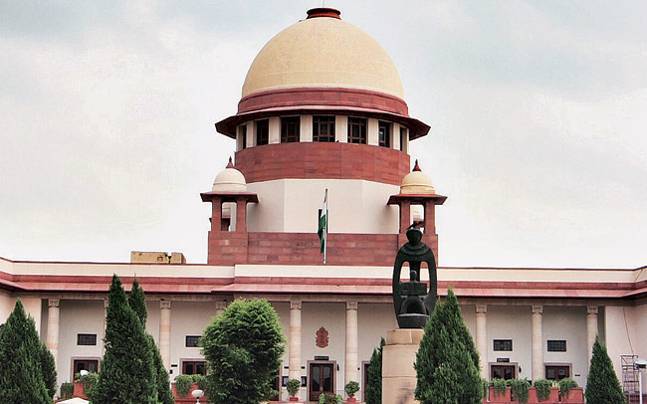
Approach and attitude of a Chief Justice of India typically influences the core character of the Supreme Court.
While the year 2017 saw three CJIs, Justice J S Khehar as well as Justice Dipak Misra, have taken significant positive steps by tackling constitutional cases that had been pushed aside for years.
Several constitution benches were set up to deal with pending matters such as the validity of Aadhar as well as for tricky issues like the misconduct of sitting high court judges.
These measures has made the SC to appear as a constitutional authority , playing the role assigned to it by the Constitution and as envisioned by its authors . Over the last two decades, the SC had got too mired in PILs, giving rise to allegations of it encroaching into the executive’s domain.
A Plethora of Landmark Judgements
The SC had many accomplishments in 2017 with a variety of path-breaking judgements:
Landmark Rulings
- To tackle a previous court judgement that negated the fundamental nature of right to privacy over 50 years ago, a nine-judge constitutional bench examine the newly critical issue of privacy in the age of intrusive digital media .
The bench ruled unanimously that the right to privacy was “an integral part of right to life and personal liberty” as guaranteed under the Constitution’s Article 21.
- The SC overcame its traditional nervousness to tackle cases with religious overtones and created a multi-faith five-judge bench to examine a bunch of petitions filed by Muslim women challenging the legality of triple talaq, a tool used for instant divorce.The bench ruled that triple talaq violated the right to equality guaranteed under Article 14 as it provided Muslim men with the unilateral right to terminate marriage without any opportunity for The SC found that as triple talaq was not sanctioned under the Quran it cannot be considered as a part of Islamic religious practices.
The ground-breaking judgement has been hailed as a decisive step towards gender equality in the country.
- The Supreme Court helped women this year gain entry to the sanctum sanctorum of Mumbai’s renowned Haji Ali dargah following in the footsteps of the Bombay High Court’s decision to allow women entry to the Shani Shingnapur temple .
The SC has also asked the Valsad Zoroastrian panchayat to admit two Parsi women, who had been forbidden from entering the Tower of Silence as a result of marrying outside the community, for the purpose of performing the last rites of parents.
- A bench comprising top seven SC judges, handled the issue of sitting Calcutta HC judge Justice C S Karnan passing derogatory remarks .
Holding the judge guilty of contempt the bench sentenced him to six-month imprisonment.
It was the first time in the SC’s 67-year history, that a sitting judge was jailed, but it established the non-negotiability of judicial decorum and dignity as well as the rule of law.
- The SC upheld a trial court ruling convicting V K Sasikala in a DA case which upended Tamil Nadu politics. The impact of the ruling on the state’s political landscape continues to this day.
- Alarming levels of pollution led the SC to ban sale of crackers in Delhi -National Capital Region on the eve of Diwali. However the measure was not sufficient to tackle the issue of crippling pollution levels in the area.
- The SC has allowed the termination of medically problematic pregnancies over the mandated 20-week threshold on grounds of humanitarian consideration, which led to several distressed women appealing to the court to direct such termination after receiving opinions from medical boards.
It has however raised the question whether the Medical Termination of Pregnancy (MTP) Act needs to be amended to accommodate such situations.
- The contentious issue of the medical admission scam involving a retired HC judge was the case that highlighted the low levels of trust quotient within the SC.
Two PILs filed by leading advocates cast aspersions on the incumbent CJI himself. The advocates abandoned longstanding norms to pursue the PILs before a particular bench which obliged. This crisis led to CJI Misra constituting a five-judge bench which ruled that the CJI remained the master of the roster.
Administrative Rulings
- An inquiry has been initiated to investigate complaints made against the Allahabad HC judge who permitted a private medical college to admit students for the academic year 2017-18, despite a ban by the SC.
- Vacancies in HC judges has remained at an alarming state, with just 40% of sanctioned strength currently filled. Around nine HCs across the nation are currently operating without chief justices while the SC has six vacancies.
In 2018, the CJI-headed collegium needs to work on priority to fill up SC and HC vacancies .
Two years ago a Constitution bench ordered the framing of memorandum of procedure for the appointment of judges but the law minister and the collegium are yet to come together to sort out disagreements, causing delays and conflict.




